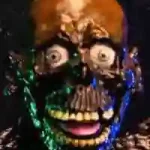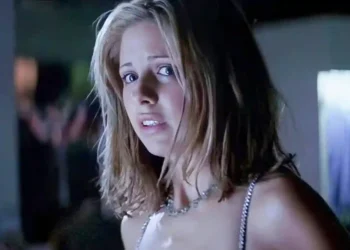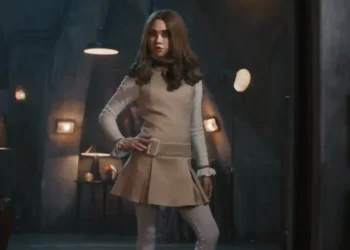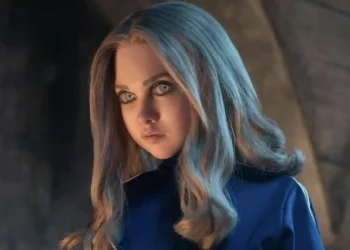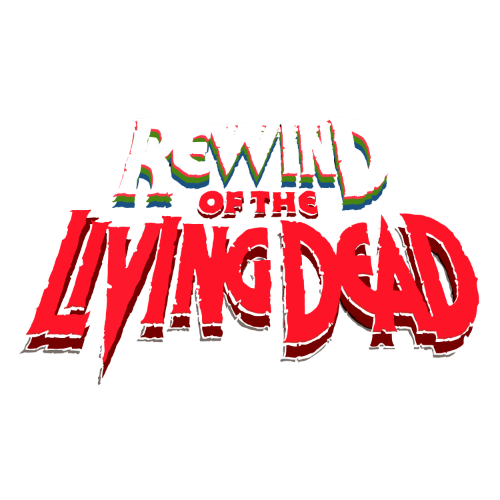Here’s our review for “The Exorcism” as Russell Crowe plays a down on his luck actor who gets the chance to resurrect his career by playing a troubled priest in a faux production of “The Exorcist”…
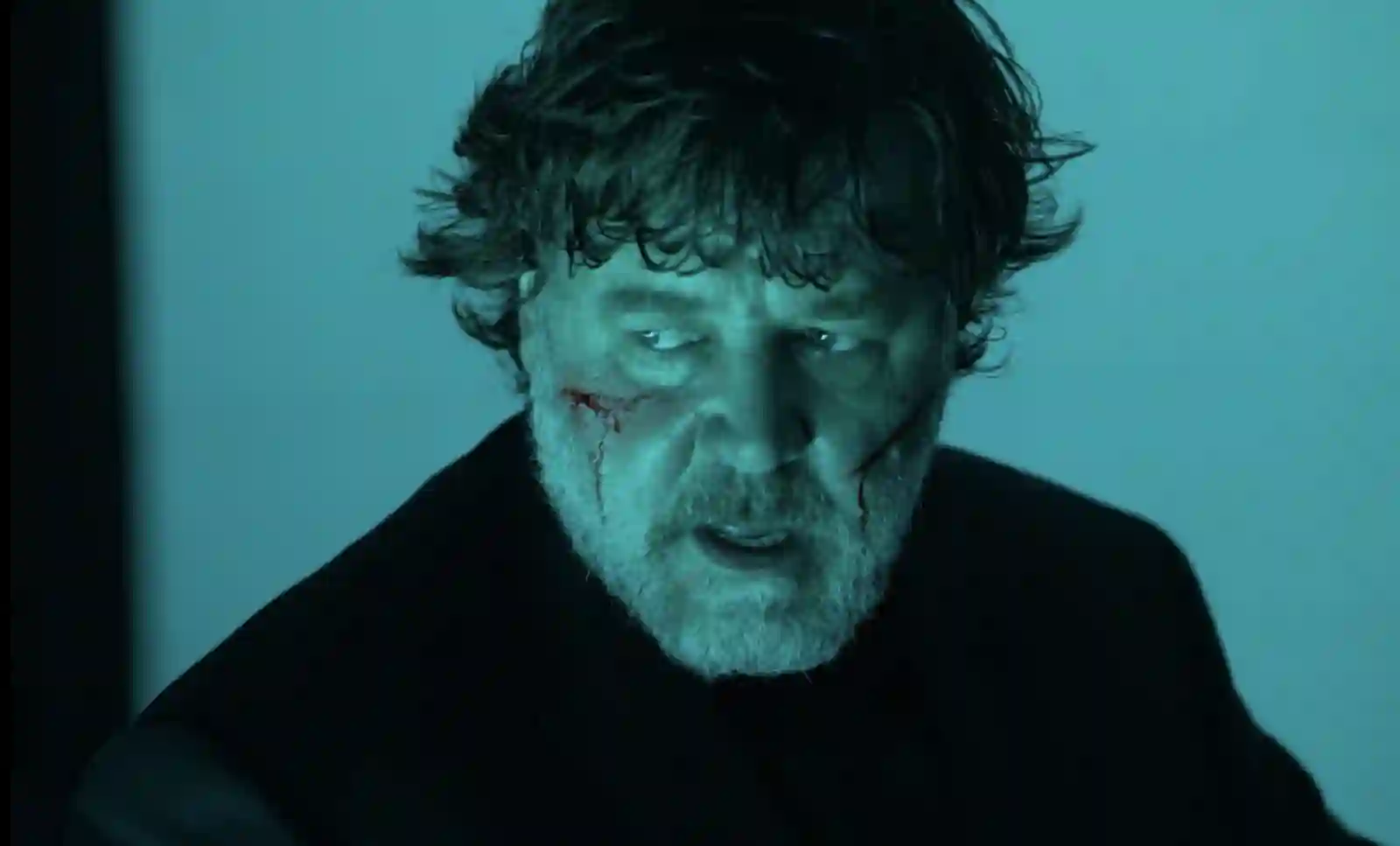
By Damon Martin — Editor/Lead Writer
A phrase that I often use on our podcast Rewind of the Living Dead is “a concept that’s far better than the execution” and that’s exactly what I would say to describe the new horror film “The Exorcism” that landed in theaters this past Friday.
The film stars Oscar winner Russell Crowe, who has apparently entered into his Nicolas Cage phase where he’s embracing a bunch of horror roles in films that don’t exactly have big budgets, but perhaps he’s hoping to find his own “Mandy” along the way. While “The Pope’s Exorcist” was surprisingly decent — not the best film but certainly not the worst — it’s tough to understand what Crowe saw in this film outside of the paycheck.
“The Exorcism” has roots tied to “The Exorcist” thanks to director Joshua John Miller, who is the son of original star Jason Miller, who portrayed Father Karras in the William Friedkin classic. Miller clearly wanted to pay homage to the making of “The Exorcist,” which was beset by all sorts of strange occurrences during filming that led to more than a few people claiming the production was cursed.
Of course, that’s also part of the legend that surrounded that film and much like similar incidents on “The Omen,” it certainly didn’t hurt marketing for those movies.
For the new film, Miller teamed up with co-writer M.A. Fortin — best known for his genre work on the film “The Final Girls” — to craft a story about a washed up actor looking for a second chance both in his career and with his estranged daughter.
Crowe plays Anthony Miller — a down-on-his-luck thespian, who was once an ‘A’ list star but he drank his way out of leading roles and the death of his wife only sent him spiraling even further down the hole of alcoholism. To make matters worse, Miller has been a rather terrible father to his 16-year-old daughter Lee, who returns home at the start of the film after she gets kicked out of her Catholic private school for vandalizing her principal’s car after he fired her guidance counselor after he revealed he was gay.
Lee’s fractured relationship with her father is so bad that she just calls him ‘Tony’ but the film attempts to build some sort of bridge between them, especially after her dad gets a call to audition for a role in a new horror film that’s already endured a tragedy on set. The original actor playing the lead role died — one of the more haunting scenes that plays out in this movie — and Anthony is getting a second chance to prove himself with an abusive director (played by Adam Goldberg), who is willing to do just about anything to get the performance out of him that he needs for this movie.
Miller’s celebration after getting the role is short lived, however, because he begins exhibiting bizarre behavior — both on set and at home — and the people around him believe he’s started drinking again. It’s safe to say with a title like “The Exorcism” that Anthony’s problems are more biblical than that.
The concept of a haunted man consumed by addiction, grief and regret sounds like a breeding ground for a powerful performance from Crowe, who obviously has the chops to pull off this role. The first 30 minutes of this film really give you the sense that this could develop into a truly inspiring reinvention of the “broken man trying to fix himself” character, especially with someone as talented as Crowe in that part.
Sadly, the first 30 minutes are the only really redeeming qualities about this movie.
Once Crowe’s character starts sleepwalking with his daughter finding him just creepily sitting in her room late at night when she returns home from hanging out with a friend, the wheels are already falling off the car.
The film attempts to point at the pressure Crowe’s character faces as he desperately tries to resurrect his career as a reason why he’s exhibiting such strange behavior but the rapid-fire way this movie unravels feels like the editors cut out about 30 minutes that could have better built this story. Once Crowe sets off on his “I’m clearly possessed but nobody actually suggests that possibility until way too late” path, he’s just going through the motions with a tired, rehashed plot that you’ve undoubtedly seen in every other film that’s ever had any version of the word “exorcism” in the title.
Perhaps the most frustrating part about this film is that “The Exorcism” is clearly Miller’s way of paying homage to his father’s most famous role because the movie-within-a-movie is basically just a fictionalized retelling of the filming of “The Exorcist” except this version is far less interesting.
Once the initial concept is introduced, the film falls back in the most generic “exorcism” tropes you could possibly imagine. The only thing missing is a scene where two priests shout “the power of Christ compels you” and then the puzzle would be complete.
While Crowe really begins phoning it in about an hour into the movie, there are a couple attempts to salvage the film from other cast members. Adam Goldberg doesn’t strike many notes with his performance as the overbearing director for the project but he definitely understands how to play a filmmaker who is willing to say or do anything to get the performance he needs out of his cast.
For the majority of the film, David Hyde Pierce probably gives the strongest performance of his career and it’s nice to see him step out of the mold of Frazier Crane’s neurotic brother, which has been his most famous role but he really understands how to play a sweet, sympathetic Catholic priest who gets hired as an expert consultant on the project. Pierce’s more subdued portrayal plays well off the bombastic choices that Crowe makes at times in this film.
But really the biggest problems throughout “The Exorcism” comes down to story choices in the script and how that’s executed on screen.
It’s hard to feel connected to any of the characters with how quickly this story progresses after the first 30 minutes serves as a solid setup. Crowe’s character goes from beleaguered and despondent to disturbing and dislikable in the blink of an eye. Unlike “The Exorcist,” which forces you to look at the devil through the eyes of a child, this film bludgeons you with the concept of Crowe’s troubled actor dealing with his demons both real and self-inflicted.
By the end of this film, your head is spinning with tired tropes that seem to permeate so many attempts at making a creative and new story centered around possession and exorcism. If you want to witness something truly groundbreaking that doesn’t feel like a bad carbon copy of “The Exorcist,” seek out films such as “Talk to Me” or “Late Night with the Devil” that actually offer you something you’ve never seen before.
As previously stated, “The Exorcism” had an interesting concept but the payoff never comes.
Our rating: 1.5 out of 5 Tarmans
